After enduring two months of brutal lockdowns that left its populace on the brink of starvation, residents of China’s oppressed Xinjiang region were told on Wednesday they will not be allowed to leave the region because the Chinese coronavirus is still running wild.
Of course, the Chinese Communist Party blamed the people of the province for spreading the disease, while grudgingly admitting a few mistakes might have been made by officials. From the South China Morning Post (SCMP) on Wednesday:
“The outbreak that was effectively controlled by the end of August saw a rebound because people became relaxed and measures were not strictly put in place,” vice-chairman of the Xinjiang Uygur autonomous region Liu Sushe said on Tuesday evening. He said the number of infections rose in places, including the cities of Urumqi, Yining and Turpan, making the wave of infections difficult to control.
“The rebound led to local spread and spillover to many other provinces, causing trouble for Covid-19 control in neighboring provinces, and the country,” Liu said. “I would like to express my deep apologies to the affected areas.”
“We have not been able to achieve dynamic zero Covid for more than two months because of the highly infectious BA.5.2 variant and the ineffectiveness of our control measures,” he said.
Plane, bus, and train service out of Xinjiang has been suspended, residents of the provincial capital Urumqi were told they cannot leave the city, and rumors are swirling that entire prefectures will be placed under expanded lockdowns, with residents forbidden to leave their own homes.
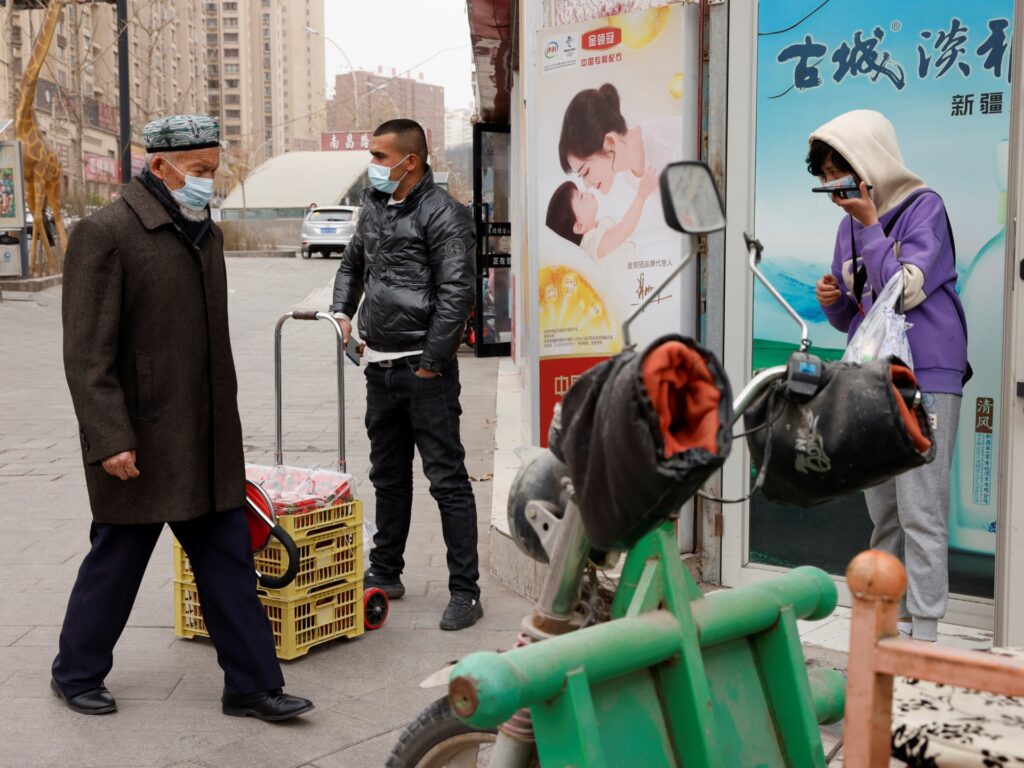
Residents wearing masks walk along the streets of Aksu in western China’s Xinjiang region on Thursday, March 18, 2021. (AP Photo/Ng Han Guan)
“China is trying to control the spread of the virus before the ruling Communist Party holds its 20th party congress from October 16 in Beijing, an event that will usher in the top leadership for the next five years,” the SCMP noted.
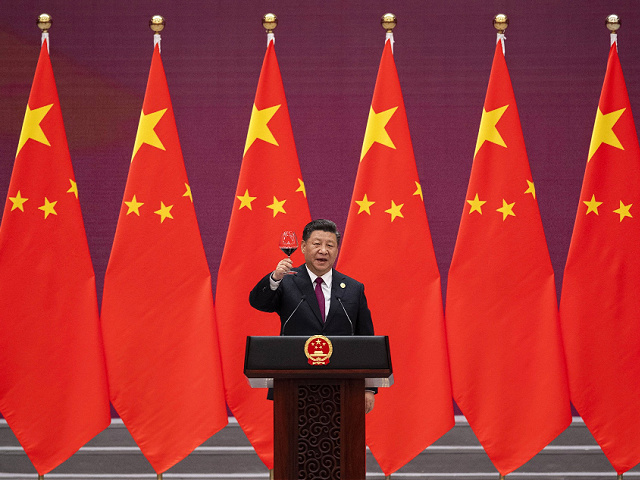
Chinese President Xi Jinping raises his glass at the Great Hall of the People, Friday, April 26, 2019. (Nicolas Asfouri/Pool Photo via AP)
Desperate residents of Xinjiang pleaded for help on social media in September, complaining of food shortages after forty days of “zero Covid” lockdown.
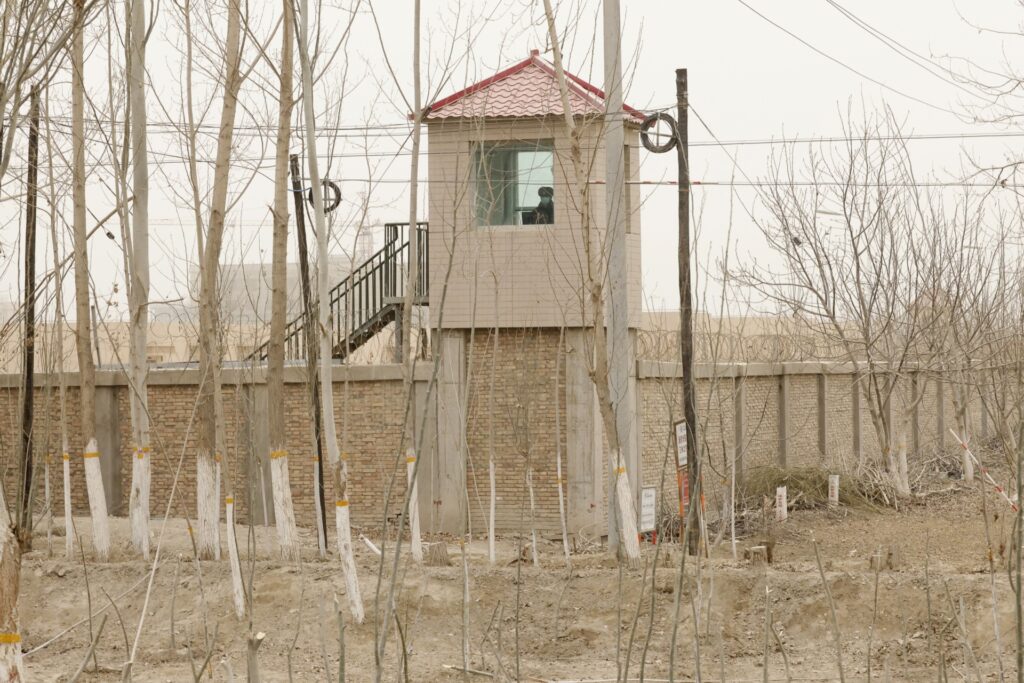
A security guard watches from a tower around a detention facility in Yarkent County in northwestern China’s Xinjiang Uyghur Autonomous Region on March 21, 2021. (AP Photo/Ng Han Guan)
The Uyghurs, a Turkic Muslim people native to Xinjiang who have been enslaved and abused by the Chinese government for years, suspected their Chinese overlords did not bother to lay in enough supplies for quarantines that would end up lasting months. Captive Uyghurs in Xinjiang told family members living abroad that they were not even permitted to leave their homes to forage or cook what little food they had.
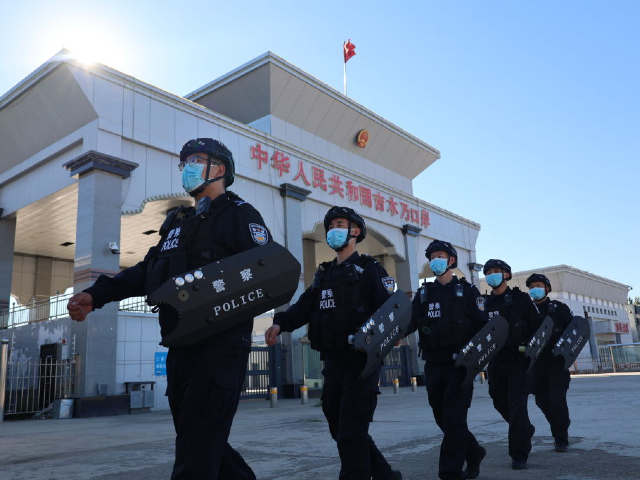
Immigration management police officers form a patrol team to patrol the border area of the port of entry in Altay, Xinjiang Province, China, July 15, 2022. (CFOTO/Future Publishing via Getty Images)
A few Chinese officials admitted the supply situation was less than ideal, but the Communist Party mostly addressed complaints by censoring the people who made them. A rolling censorship battle has been in progress since August, with Communist officials deleting social media posts as quickly as the Uyghurs can write them, or drowning out their complaints by flooding social media channels with spam.
Local officials admitted in September that at least a dozen people died from lack of food and medicine as of September, including elderly people who died alone because their quarantined relatives were unable to check on them. In some reported cases, people were weakened by starvation until their pre-existing medical conditions killed them.
An unfortunate fellow using the pseudonym “Yang Fei” told CNN on Wednesday he has been stuck in Urumqi since early August, but he does not even live there — he was only in town to visit his girlfriend. Yang has special dietary needs as a survivor of stomach cancer, so his Xinjiang lockdown experience has been a nightmare:
Over 30 days, he said he received just three deliveries of groceries from community authorities, and fainted from hunger twice. He said he repeatedly called the mayor’s hotline and the police, to no avail; social media calls for help went unanswered. He ran out of food by early September; after not eating for 24 hours, he finally called for an ambulance with his remaining strength before passing out.
Community workers eventually broke into his apartment, and brought him a food package comprised of three potatoes, a cabbage, a leek, and some peppers and garlic. Yang had to ration the package over three days.
Yang said the coronavirus restrictions in Xinjiang were much harsher than anywhere else in China, suggesting the authorities are using the lockdown as an opportunity to crush dissent in the province and test the extensive surveillance systems they installed to keep track of the Uyghurs. Yang also said he has been personally harassed by the police and told not to complain about his dire situation.
Radio Free Asia (RFA) observed that even when the Xinjiang lockdown was briefly loosened in late September, Uyghurs kept dying from starvation and lack of medicine because the major cities lack Uyghur-language emergency services. Residents who do not speak Mandarin are required to find someone who does, in order to call the emergency response center and plead for help.
“Besides malnourishment, some Uyghurs in the area died because of reactions to unknown drugs and poisoning from disinfectants sprayed to kill coronavirus germs,” RFA reported.
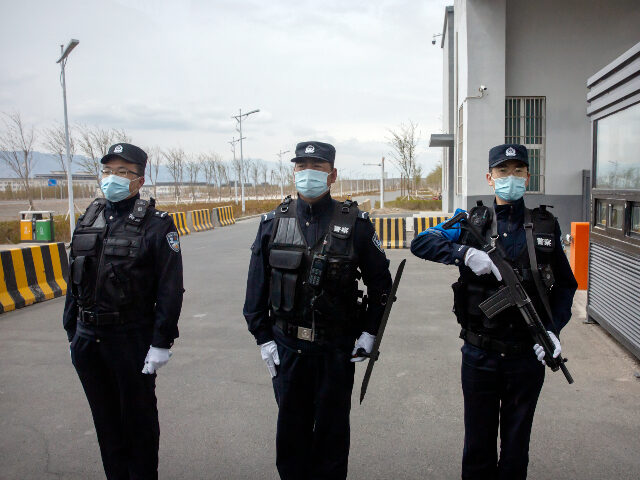
COMMENTS
Please let us know if you're having issues with commenting.